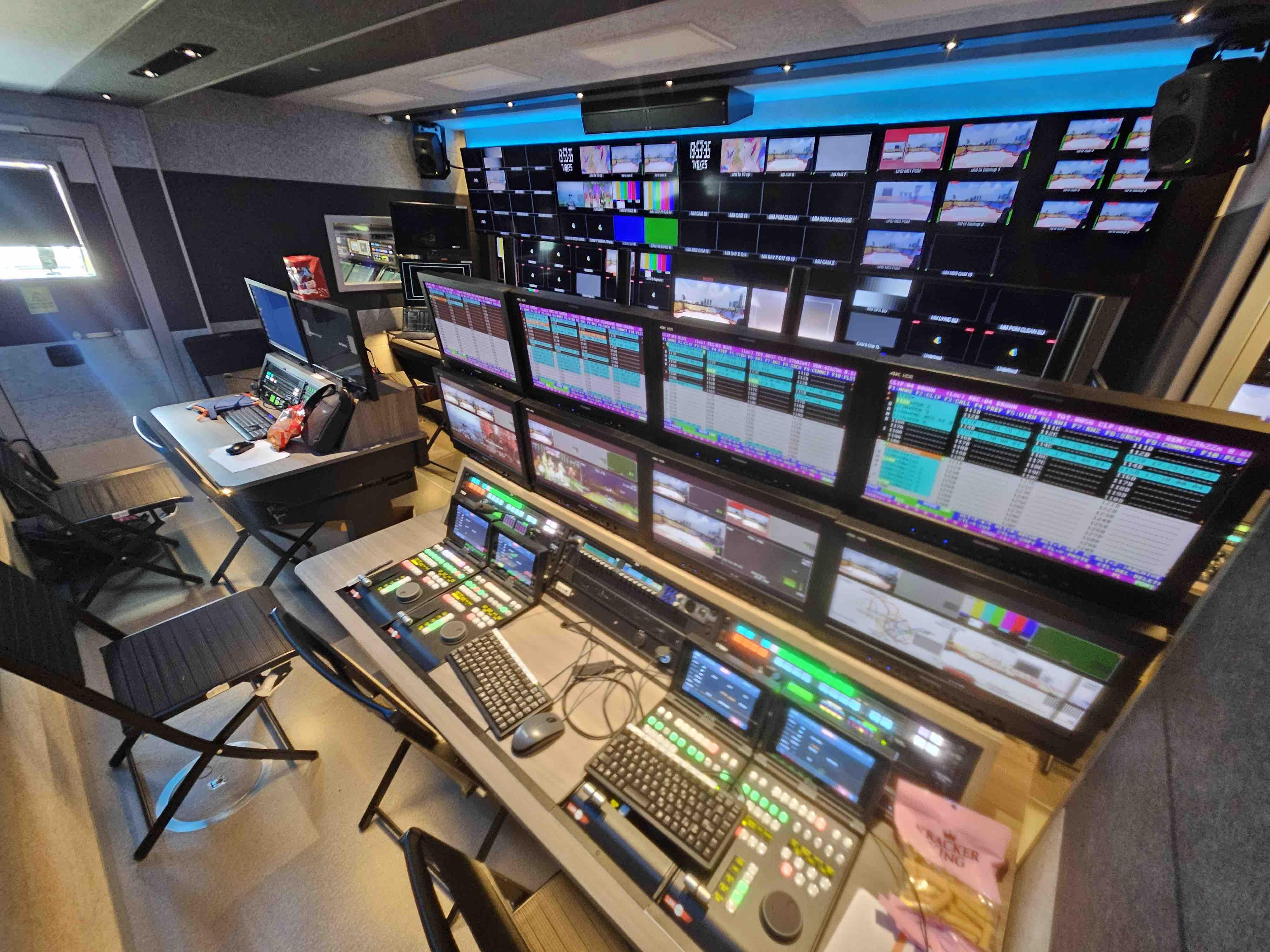Powell to Exit Portals
FCC Chairman to step down in March
WASHINGTON
FCC Chairman Michael Powell ended a long game of cat-and-mouse last month when he officially announced his intention to leave the commission "some time in March," but the announcement only seemed to intensify certain regulatory battles.
Before packing up his pencils, Powell was expected to issue a ruling on multicast must-carry, which he has long opposed. At press time, broadcasters lobbied for a postponement amid reports that the FCC would take up the issue at its Feb. 10 meeting.
In a letter to lawmakers, Belo Corp. Chairman and CEO Robert Decherd wrote, "I believe that taking agency action prior to a new FCC chair being seated... is very ill-advised. Moreover, a decision now by the FCC could hamper Congress's ability to consider all of the important issues surrounding the transition... The DTV transition needs to be analyzed in a comprehensive fashion."
Among those on Dercherd's mailing list was House Commerce Committee Chairman Joe Barton (R-Texas), who has stated his intention to analyze the DTV transition in just such a fashion. Barton is looking to overhaul the entire '96 Telecom Act this year and enforce analog shut-off by the end of 2006.
Soon after Dercherd dispatched his entreaty, the cable lobby countered by announcing an unprecedented carriage deal with public television stations. The National Cable and Telecommunications Association contends that forcing cable operators to carry multiple broadcast signals is unconstitutional, and that carriage should be determined by the market.
The NCTA drove that point home Jan. 31 from the National Press Club in Washington, D.C., where the carriage arrangement was publicized. Under terms of the agreement, cable systems offering HD content will carry "up to four streams of free noncommercial digital broadcast programming and associated material from one public television station in a market," in addition to the station's analog signal.
Powell called the agreement "a testament to both the public broadcast community's commitment to driving the DTV transition and cable operators' willingness to carry compelling digital broadcast programming."
MARKET APPROACH
Powell favored a similar laissez faire market approach in other situations, including the merger of the nation's two largest cable operators, Comcast and AT&T Broadband. But the philosophy didn't always serve him well, particularly in the realm of media ownership. When Powell was elevated from commissioner to chairman in 2001, he was immediately dealt a rewrite of media ownership rules by a former legal mentor, D.C. Circuit Court Judge Harry T. Edwards.
The subsequent rewrite, which allowed one company to own three TV stations, eight radio stations, a cable system, and the dominant daily newspaper in the country's largest markets, caused apoplexy on Capitol Hill and across the country. The Third Circuit Court of Appeals in Philadelphia stayed a large portion of the new rules last fall, creating a loose thread that Powell will leave untied. Just days after Powell tendered his resignation, the Bush Administration announced it would not seek to have the stay overturned by the Supreme Court. Instead, the National Association of Broadcasters said it would initiate a high court review.
Content indecency was another area where the free-market approach blew up in Powell's face. A former Army officer, Powell went from shrugging off Bono's primetime f-word to levying the largest indecency fines in FCC history. The outgoing chairman will leave broadcasters without firm guidelines on what can be considered indecent, while Congress moves ahead on bills to increase individual indecency fines from $32,500 up to $500,000.
SPECTRUM QUESTIONS
Powell will also walk away from a heap of spectrum coordination issues, as broadcasters work through channel selection while coping with BAS displacement and unlicensed devices. Powell previously said he intended to isssue a ruling that would unleash said devices in the cushion of spectrum between TV channels that prevents interference. For broadcasters, the issue is inextricably linked with the DTV transition as more than 1,600 licensees in 212 markets each select a channel that doesn't interfere with other stations and works with their respective transmission equipment.
So unabashed has Powell been in his support of unlicensed devices and other new technologies that his departure elicited an ode from Gary Shapiro, president and CEO of the Consumer Electronic Association.
"Anyone who ever heard him speak about the transformative and empowering experience of using technology knew they were in the presence of a true visionary," Shapiro said in a statement. "Even I think he is one of the smartest government officials I have ever known and we will be a better country if we can get him back into public service. Before he was named chairman, I said I thought he would be president some day."
NAB President and CEO Eddie Fritts was a bit more subdued:
"While we have shared occasional policy differences, I have nothing but the utmost respect for the intellect, passion, and good humor that he brings to the job," Fritts said.
Ken Ferree, a Georgetown law-school chum Powell appointed to head up the FCC Media Bureau, will follow the chairman out the door.
Top candidates for Powell's post include Gulf War veteran Rebecca Klein, a former head of the Texas Public Utility Commission and staffer of then Gov. George Bush. FCC Commissioner Kevin Martin remains on the list, as do former Bush telecom policy advisers Janice Obuchowski and Michael Gallagher.
The professional video industry's #1 source for news, trends and product and tech information. Sign up below.
